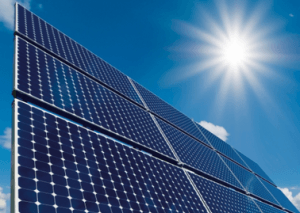Ghana ready to roll flagship climate financed renewable energy programme
 The Ministry of Energy has just completed the preparatory activities for the implementation of the country’s flagship climate financed renewable energy programme estimated to cost about 230 million dollars.
The Ministry of Energy has just completed the preparatory activities for the implementation of the country’s flagship climate financed renewable energy programme estimated to cost about 230 million dollars.
The implementation of the programme, expected to take off in 2022, would result in the electrification of more than 250,000 Ghanaians living in islands and lakeside communities and provide about 15,000 small and medium private sector enterprises with cheap and clean renewable energy to drive the cost of doing business down and make them competitive.
The programme forms part of Ghana’s resolve to pursuing climate-friendly policies, strategies and actions to transition the country’s energy sector to support and accelerate the low carbon economic development agenda.
The country has committed to achieving a 10 per cent renewable energy contribution to the generation mix by 2030.
Mr Seth Mahu, Deputy Director, Renewable Energy, Ministry of Energy, explained to the Ghana News Agency on Wednesday that the multilateral development financed scaling-up renewable energy programme (SREP) would jointly be funded by the government of Ghana, the African Development Bank, the Climate Investment Fund and the Swiss Government as well as the private sector.
Of the $230 million budget, the Climate Investment Fund had committed to providing $30 million in grants, the African Development Bank is giving $45 million of concessional loans and grants, the Swiss government will provide $14 million in grants, while the government of Ghana would provide $16 million and the rest would come from the private sector.
Mr Mahu was speaking to the GNA on the sidelines of the Private Sector Climate Change Investment forum being held in Accra on the theme: “Empowering the Private Sector as a Key Partner in achieving Ghana’s NDCs in the Era of COVID-19 and beyond.”
The two-day forum was being hosted by the Private Enterprises Federation (PEF) in collaboration with the Ministries of Finance and Environment, Science, Technology and Innovation and the United Nations Development Programme (UNDP) under the Global Climate Finance Readiness Programme and the Nationally Determined Contribution (NDCs) Support Programme.
Private sector players would through the forum, explore the opportunities and risks to climate change investment and identify possible concrete actions that could be taken forward to overcome key barriers, particularly in the era of COVID-19.
Mr Mahu said the 15,000 SMEs that would benefit from the cheap and clean energy would have about 25 to 50 per cent of their energy and electricity bills reduced, “and that will be significant.”
He said areas that would be sought for within the private sector would be the areas of design, engineering, supply and installation of the systems, adding that there would be about 3,000 direct jobs that would be created from the private sector.
He said the private sector would be at the core of the implementation of the SREP and so he urged the players to leverage the programme to unlock other green climate finance opportunities and cost-effective capital for their investment and businesses.
Source: GNA
